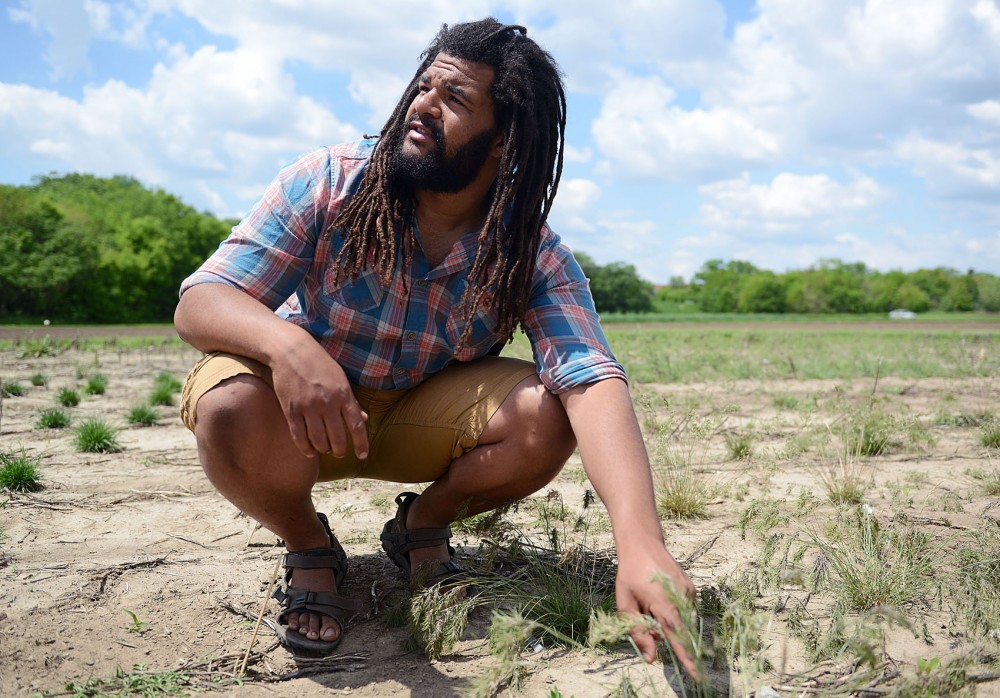Clemon Dabney III was one of only six black graduate students enrolled in the College of Food, Agricultural and Natural Resource Sciences last year.
Dabney said he struggles with adjusting to the contrasting culture of the people surrounding him every day.
“It’s very isolating,” he said. “There’s nobody that looks like me.”
But Dabney’s experience isn’t unique, as the number of black graduate students at the University of Minnesota’s Graduate School continues to decrease — despite increased efforts to recruit students of color in recent years. Now, the Graduate School is searching for new ways to boost the dwindling figure and retain those students.
This year, black graduate students on the Twin Cities campus represented 2.7 percent of all graduate students — dropping slightly from 2.9 percent in 2010.
Patricia Jones Whyte, director of the Office for Diversity in Graduate Education, said the decrease in black graduate student enrollment is a national issue, and the Graduate School is struggling to understand why the school’s number continues to decline.
“We were surprised as everyone else that our numbers were not holding steady,” she said.
The school already has plans to combat the declining enrollment numbers of black graduate students, said acting Vice Provost and Dean of Graduate Education Sally Kohlstedt.
She said over the next two years, the school will experiment with using the Graduate Record Examination — a national standardized test that students take before applying to graduate school — to find and recruit black students from across the nation.
This new strategy will mark the first time the Graduate School will explicitly tell departments to recruit more black students, Jones Whyte said.
“We’re really anxious to get faculty to use the databases we have available, and the GRE to reach out to students, because it does make a difference,” she said.
The school will also be doling out more dollars to bring in other underrepresented students.
Administrators awarded the Graduate School $100,000 in funding this year for the Diversity of Views and Experiences fellowship, which will award two additional fellowships to minority graduate students, Kohlstedt said.
But recruiting students is just half the battle and retaining black students has been an ongoing issue, she said.
Kohlstedt said the school wants to enhance its Community of Scholars Program, which helps connect underrepresented students on campus, to make minority students feel more comfortable and gain a sense of community at the University.
But Dabney said he’s skeptical of the Graduate School’s recent initiatives and said it needs to create more concrete plans to see any real changes.
“The rates are decreasing, and they’re not taking significant steps with actual teeth to increase [black] graduate enrollment,” he said.
Recruiting black faculty
Jones Whyte said it’s difficult to recruit black graduate students to the University because some feel like the school doesn’t have faculty they can relate to.
Once when Jones Whyte tried vigorously to recruit a black doctoral student to the school, the high-achieving student declined to enroll because her mentors warned her that the University had very few black faculty members in the history department — the program she was pursuing.
Those types of situations are common, Jones Whyte said.
Keith Mayes, an African American and African studies associate professor, said for graduate students of color, the race of a faculty member is especially important because those students need to feel like they have role models similar to them — in both appearance and interests.
“You need mentors who look like the students that they are serving,” he said.
A little more than 2 percent of faculty members on the Twin Cities responded as being black or African-African in a 2012 employee survey
conducted by the Office of Human Resources.
Dabney said when he attended the University of St. Thomas for his undergraduate degree, there were administrators who made sure he was connected to many black professors — people he said aren’t available to him here.
“I just automatically had these networks that I feel are lacking for me here,” he said.
Student Board of Regents member and African-American doctoral student Abdul Omari said he and many black
graduate students have a hard time finding other people to relate with outside of their programs.
“I know that people struggle with that,” he said. “I have as well.”
Omari said he hopes the conversation regarding diversity across all levels at the University continues, and he said part of his duty as a regent is making sure that happens.
“Continuing this conversation, and then holding [President Kaler] responsible — that’s our primary job,” he said.


